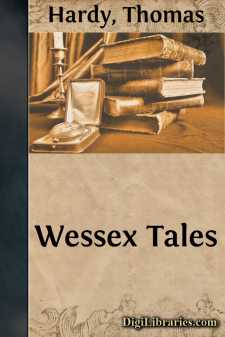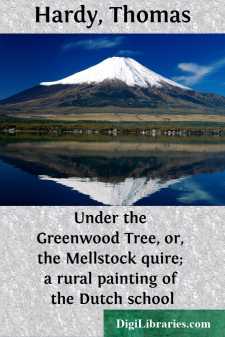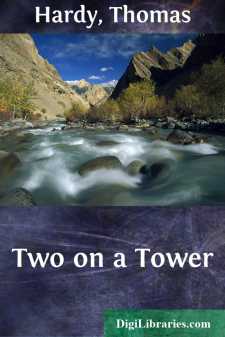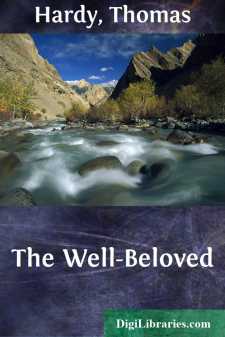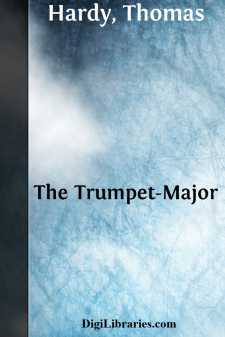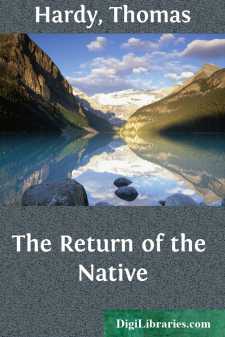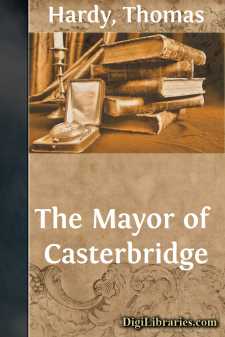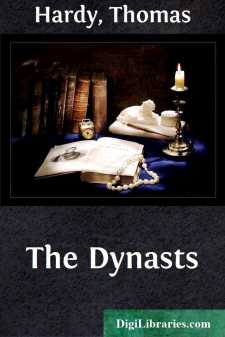Categories
- Antiques & Collectibles 13
- Architecture 36
- Art 48
- Bibles 22
- Biography & Autobiography 813
- Body, Mind & Spirit 142
- Business & Economics 28
- Children's Books 17
- Children's Fiction 14
- Computers 4
- Cooking 94
- Crafts & Hobbies 4
- Drama 346
- Education 46
- Family & Relationships 57
- Fiction 11829
- Games 19
- Gardening 17
- Health & Fitness 34
- History 1377
- House & Home 1
- Humor 147
- Juvenile Fiction 1873
- Juvenile Nonfiction 202
- Language Arts & Disciplines 88
- Law 16
- Literary Collections 686
- Literary Criticism 179
- Mathematics 13
- Medical 41
- Music 40
- Nature 179
- Non-Classifiable 1768
- Performing Arts 7
- Periodicals 1453
- Philosophy 64
- Photography 2
- Poetry 896
- Political Science 203
- Psychology 42
- Reference 154
- Religion 513
- Science 126
- Self-Help 84
- Social Science 81
- Sports & Recreation 34
- Study Aids 3
- Technology & Engineering 59
- Transportation 23
- Travel 463
- True Crime 29
Thomas Hardy
Thomas Hardy (1840-1928) was an English novelist and poet, known for his depiction of the rural life and social issues in the Victorian era. His notable works include "Tess of the d'Urbervilles," "Far from the Madding Crowd," and "Jude the Obscure," which often explore themes of fate, love, and the struggle against societal constraints. Hardy's writing is characterized by its rich, descriptive style and profound pessimism, reflecting his belief in the indifferent nature of the universe.
Author's Books:
Sort by:
by:
Thomas Hardy
AN IMAGINATIVE WOMAN When William Marchmill had finished his inquiries for lodgings at a well-known watering-place in Upper Wessex, he returned to the hotel to find his wife. She, with the children, had rambled along the shore, and Marchmill followed in the direction indicated by the military-looking hall-porter ‘By Jove, how far you’ve gone! I am quite out of breath,’ Marchmill said, rather...
more...
by:
Thomas Hardy
PREFACE This story of the Mellstock Quire and its old established west-gallery musicians, with some supplementary descriptions of similar officials in Two on a Tower, A Few Crusted Characters, and other places, is intended to be a fairly true picture, at first hand, of the personages, ways, and customs which were common among such orchestral bodies in the villages of fifty or sixty years ago. One is...
more...
by:
Thomas Hardy
PREFACE. This slightly-built romance was the outcome of a wish to set the emotional history of two infinitesimal lives against the stupendous background of the stellar universe, and to impart to readers the sentiment that of these contrasting magnitudes the smaller might be the greater to them as men. But, on the publication of the book people seemed to be less struck with these high aims of the author...
more...
by:
Thomas Hardy
CHAPTER I. The rambler who, for old association or other reasons, should trace the forsaken coach-road running almost in a meridional line from Bristol to the south shore of England, would find himself during the latter half of his journey in the vicinity of some extensive woodlands, interspersed with apple-orchards. Here the trees, timber or fruit-bearing, as the case may be, make the wayside hedges...
more...
by:
Thomas Hardy
1. I. A SUPPOSITITIOUS PRESENTMENT OF HER A person who differed from the local wayfarers was climbing the steep road which leads through the sea-skirted townlet definable as the Street of Wells, and forms a pass into that Gibraltar of Wessex, the singular peninsula once an island, and still called such, that stretches out like the head of a bird into the English Channel. It is connected with the...
more...
by:
Thomas Hardy
I. WHAT WAS SEEN FROM THE WINDOW OVERLOOKING THE DOWN In the days of high-waisted and muslin-gowned women, when the vast amount of soldiering going on in the country was a cause of much trembling to the sex, there lived in a village near the Wessex coast two ladies of good report, though unfortunately of limited means. The elder was a Mrs. Martha Garland, a landscape-painter’s widow, and the...
more...
by:
Thomas Hardy
I A Saturday afternoon in November was approaching the time of twilight, and the vast tract of unenclosed wild known as Egdon Heath embrowned itself moment by moment. Overhead the hollow stretch of whitish cloud shutting out the sky was as a tent which had the whole heath for its floor. The heaven being spread with this pallid screen and the earth with the darkest vegetation, their meeting-line at the...
more...
by:
Thomas Hardy
1. One evening of late summer, before the nineteenth century had reached one-third of its span, a young man and woman, the latter carrying a child, were approaching the large village of Weydon-Priors, in Upper Wessex, on foot. They were plainly but not ill clad, though the thick hoar of dust which had accumulated on their shoes and garments from an obviously long journey lent a disadvantageous...
more...
by:
Thomas Hardy
1. A STREET IN ANGLEBURY—A HEATH NEAR IT—INSIDE THE ‘RED LION’ INN Young Mrs. Petherwin stepped from the door of an old and well-appointed inn in a Wessex town to take a country walk. By her look and carriage she appeared to belong to that gentle order of society which has no worldly sorrow except when its jewellery gets stolen; but, as a fact not generally known, her claim to distinction was...
more...
by:
Thomas Hardy
The Spectacle here presented in the likeness of a Drama is concerned with the Great Historical Calamity, or Clash of Peoples, artificially brought about some hundred years ago. The choice of such a subject was mainly due to three accidents of locality. It chanced that the writer was familiar with a part of England that lay within hail of the watering-place in which King George the Third had his...
more...


